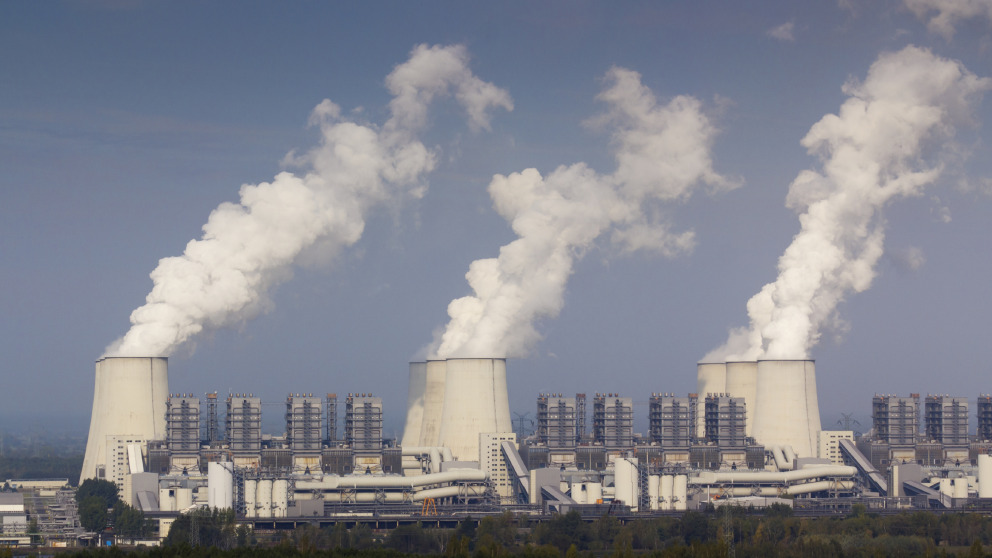For Climate and Health: Let’s Step up our Ambition for Clean Air
17.01.2019

It smelled like smoke when I arrived in Katowice, Poland, early on a Sunday morning, at the start of last December’s UN Climate Change Conference COP24. It instantly reminded me of landing in Beijing for the first time in 2016: back then the smell of coal-tinged air was immediately present upon walking up the jetway into the shiny, ultra-modern Beijing airport.
In Katowice a quick look at my air quality app supported what I could already smell – it described the real-time level of air pollution as “very high,” with concentrations of fine particulate matter (PM2.5) far above the WHO-recommended safe level. I asked myself: is the smell of coal a motivating or a disheartening start to a two-week conference ultimately dedicated delivering the promise of the Paris Agreement? The answer is probably a little bit of both.

Climate and air quality are closely linked
The UN Climate Change Conferences are of course focused on the topic of climate. Climate change cannot, however, be divorced from the topic of air quality, because CO2 and air pollutants such as particulate matter share many of the same sources – most importantly, the combustion of carbon-based fuels, including fossil fuels and biofuels. Some air pollutants also have the additional effect of warming the climate, and I had traveled to COP24 to give a talk on one of them in particular: black carbon, a component of fine particulate matter commonly known as soot. Not only is black carbon unhealthy to breathe, contributing to respiratory and cardiovascular disease; it also has a warming impact on the climate. Indeed, the recently published IPCC Special Report on Global Warming of 1.5°C highlights that deep reductions in black carbon are a common feature of nearly all scenarios for limiting global warming to 1.5 or 2°C. At a side event in the EU Pavilion, I presented an overview of the key sources of black carbon pollution in Europe and argued that reductions in diesel emissions in the on- and off-road transport sector and in wood-burning emissions in the residential heating sector were key to meeting European air quality goals and protecting the climate.
In Katowice, nearly all of the Polish people I spoke to raised the topic of poor air quality in connection with climate. A common refrain was “you can tell we have a problem with coal – you can see how smoky our air is.” In contrast, living in Germany I have the sense that most of us take our comparatively good air quality for granted. The air pollution in our cities and towns is not as easy to see or taste, and when we think of poor air quality, our thoughts immediately turn to far-away places like China. In reality, though, the entire EU has significant room for improvement: the EEA estimates that roughly 80% of the EU urban population is exposed to fine particulate matter concentrations that exceed the World Health Organization annual air quality guideline.
Clean air: it’s (also) about quality of life
So can a push for clean air help us reach our climate goals? My experience in Poland and in working with the Climate and Clean Air Coalition tells me that the desire and demand for clean air can be an important motivating factor in taking action to reduce emissions in ways that are beneficial for both air quality and climate – at least in countries and regions where air quality is perceived as a burden or even a public health crisis (e.g. in much of Asia). Considering the outcome of COP24 – progress in the negotiations but with ambition lagging alarmingly behind – I see that capitalizing on synergies between air pollution reduction and climate protection can be one important way to boost ambition. But could this be effective in the EU? In European policy forums it is often argued that reducing air pollution would reduce premature deaths and save money in health care costs, and this is correct and important. But in a context like Germany where air pollution is as invisible a threat as climate change, perhaps it would be more effective to cultivate an appreciation of clean air as part of a national and European identity, and as a part of our understanding of quality of life – something to strive for and something to be proud of.
